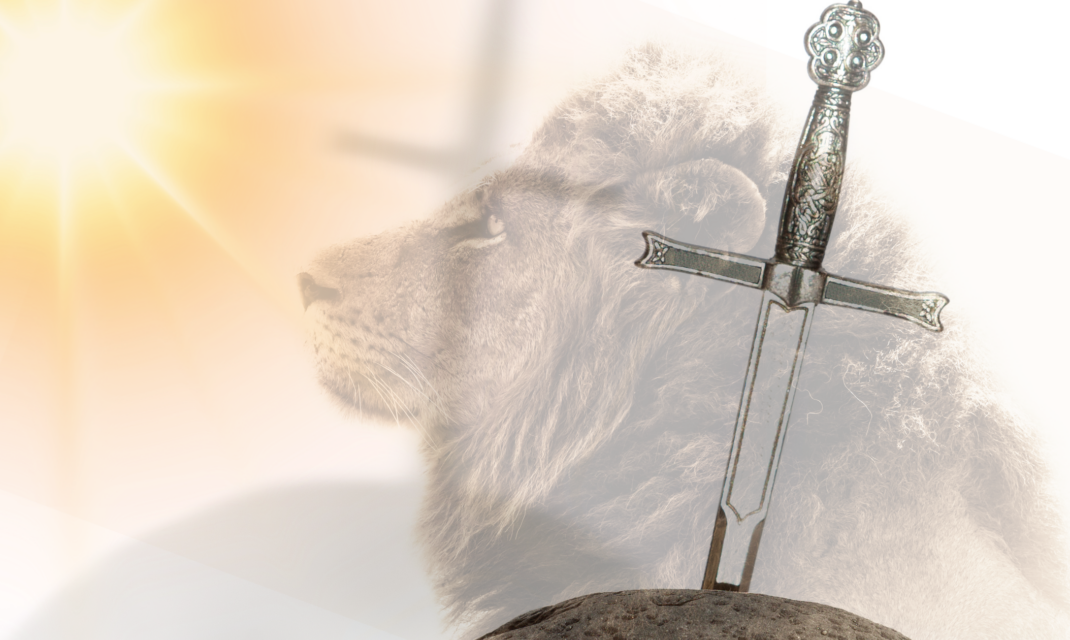Throughout Lent, guest blogger Dr. Junius Johnson will be reflecting on the season through the lens of C.S. Lewis’s great series, The Chronicles of Narnia. We invite you to join him in revisiting this world of childhood imagination even while you prepare your hearts to rejoice again in the salvation Christ worked at the cross.
“In the last days of Narnia.” With these words, the final book of the series begins. From the outset, we are not allowed to be ignorant of the fact that this world, a world that we have come to love so deeply and desire so fully that we think of ourselves as Narnians, is going to end. Chapter 2 begins: “About three weeks later the last of the kings of Narnia,” once again reminding us that this is the end. Throughout the story, things are never allowed to go well for very long: hopes may rise for a moment, but then things are revealed to be much worse than we had thought. The ape’s plans were too well-laid, the Calormenes have moved too quickly, the king is too far behind and too uninformed. Only halfway through the book, we learn that Calormen has taken Cair Paravel and the messenger the king had sent to summon help has miscarried. The chapter comes to a close with the last king of Narnia saying: “Narnia is no more.”
Why is Lewis at such great pains to make sure we keep before our eyes the fact that Narnia is coming to an end? So inexorable is the narrative march and so relentless the repeated notes of doom that it has something of the air of a Greek tragedy. Roonwit the centaur offers part of the answer with his dying words for the king: “remember that all worlds draw to an end and that noble death is a treasure which no one is too poor to buy” (The Last Battle, ch. 8). The world will end: there is no question about that; you will die: there is hardly any question about that. The only questions are what you will be doing when the world ends, or, for most of us, how we will die. You don’t have to be killed to die a martyr’s death; you only have to die as an example of faithful witness, which has as many different forms as there are Christians who die.
“remember that all worlds draw to an end and that noble death is a treasure which no one is too poor to buy”
But more than this, Lewis is concerned that we readers not forget the type of story we’re in. This is a story of endings, just as the previous book, The Magician’s Nephew, was a story of beginnings. It is not just Narnia as a kingdom that is ending: the whole world is coming to an end. It is as if it cannot survive the loss of Aslan’s chosen kingdom. The whole world is overcome by wild beasts, then drowned, then consigned to the final ice, and the High King Peter locks the door with a key he has perhaps carried with him ever since he first left Narnia leaderless to return to his world, or that has maybe only just now appeared in his pocket.
Jesus, like Lewis, is at pains to make sure the disciples cannot forget that they live in the end times. And even though we may struggle to understand what that means, we should not hesitate to believe that it is true, for the Lord himself spoke it. The Church has never existed in any time other than the end of times, and the age of the Church, for however long it runs, is the twilight of the world. And just as surely as our hearts can go astray as readers if we forget that The Last Battle is about the end of Narnia, getting lost in hopes that cannot come true, so our hearts can go astray in this world if we forget the type of story we are in. Ours is not so much a story of living as it is of dying; of creating as of laying things properly to rest. The Church oversees the transfer of riches from the kingdoms of the world to the kingdom of God, riches that lie not where the world thinks they do: not in her gold, silver, and precious jewels, but in her people and their cultures.
Ours is not so much a story of living as it is of dying. . .
As Jesus hung on the cross, darkness covered the earth. In that darkness, all the kingdoms of the world were judged. They may continue to play their games of thrones, and may even do so with increased urgency because they have some sense of what that darkness means, but it will come to nothing. Calormen longed for over 1500 years to swallow up Narnia; when it finally did, it got no joy of the victory, for that very night every kingdom in the world was overthrown and laid waste. The nations and kings of the world will vie for power and dominion, and they will cause serious and meaningful harm while they do it; but they already stand judged, and their efforts will be brought to naught, and the tears they cause will be wiped away. Nightmares rarely seem so bad in the light of the day that follows.
So, friends, what are we to do, now that Narnia is no more? Puddleglum already told us: we are to live as like Narnians as we can. For the seven lords of Narnia from our world, the point was never the land itself, but the real Narnia in Aslan’s country, of which the land they knew was but a shadow. For us, it is not the Narnia whose history is told in seven books that matters, but the land we carry within our hearts, which Narnia was only ever meant to point us to and remind us of. Narnia doesn’t need to exist for us to live like Narnians, because one greater than Narnia is here: he is hanging upon the cross. Let us fix our eyes upon him; let us fix him firmly in our hearts. For by meditating on and sharing in his sufferings we are saved from the wreck and ruin of the kingdoms of the world.

Junius Johnson is an independent scholar, teacher, musician, and writer. He is the executive director of Junius Johnson Academics, through which he offers innovative classes for both children and adults that aim to marry the sense of wonder with intellectual rigor. An avid devotee of story, he is especially drawn to fantasy, science fiction, and young adult novels. He performs professionally on the french horn and electric bass. He holds a BA from Oral Roberts University (English Lit), an MAR from Yale Divinity School (Historical Theology), and an MA, two MPhils, and a PhD (Philosophical Theology) from Yale University. He is the author of 4 books, including The Father of Lights: A Theology of Beauty. An engaging speaker and teacher, he is a frequent guest contributor to blogs and podcasts on faith and culture, and is a member of The Cultivating Project. Explore his work at juniusjohnson.com.

